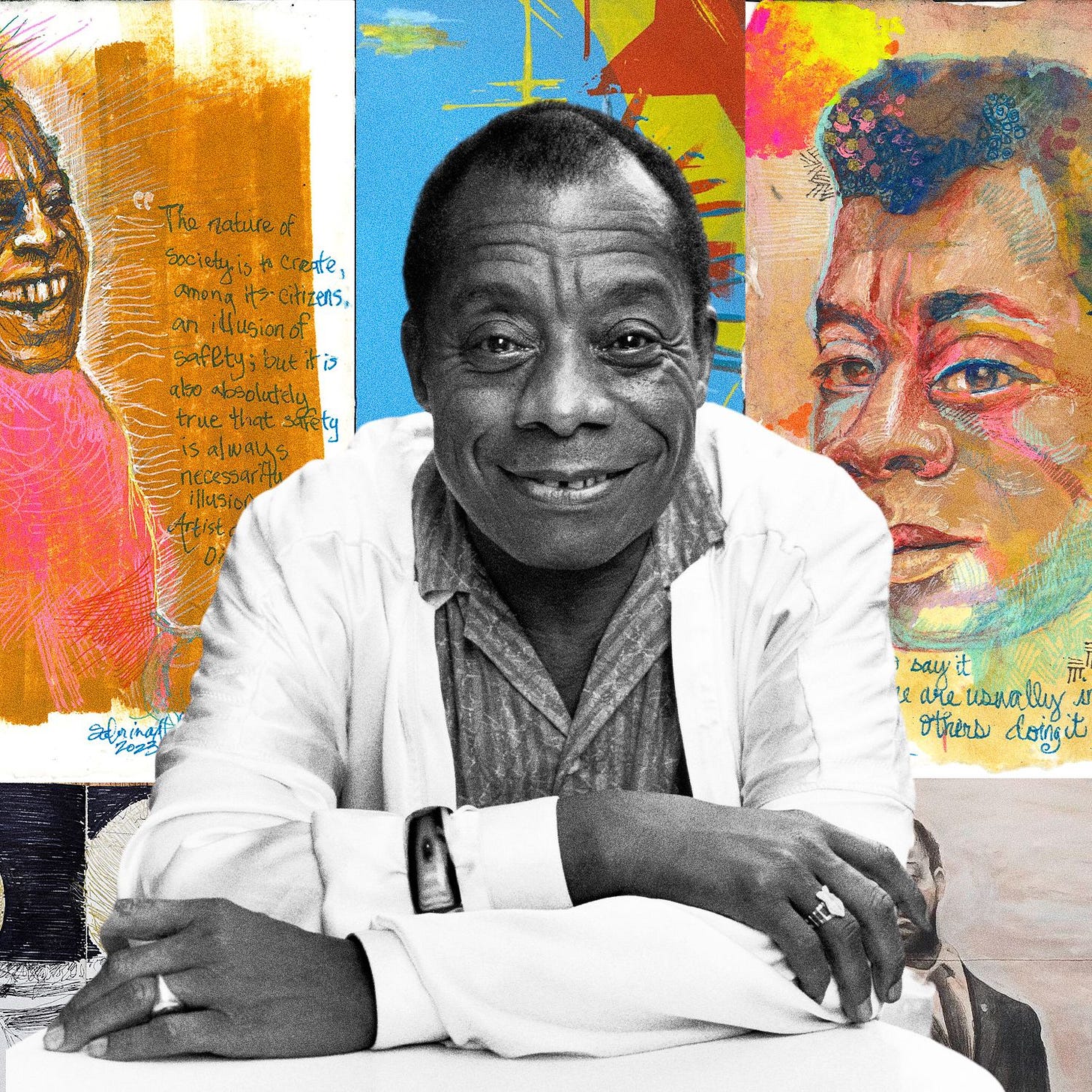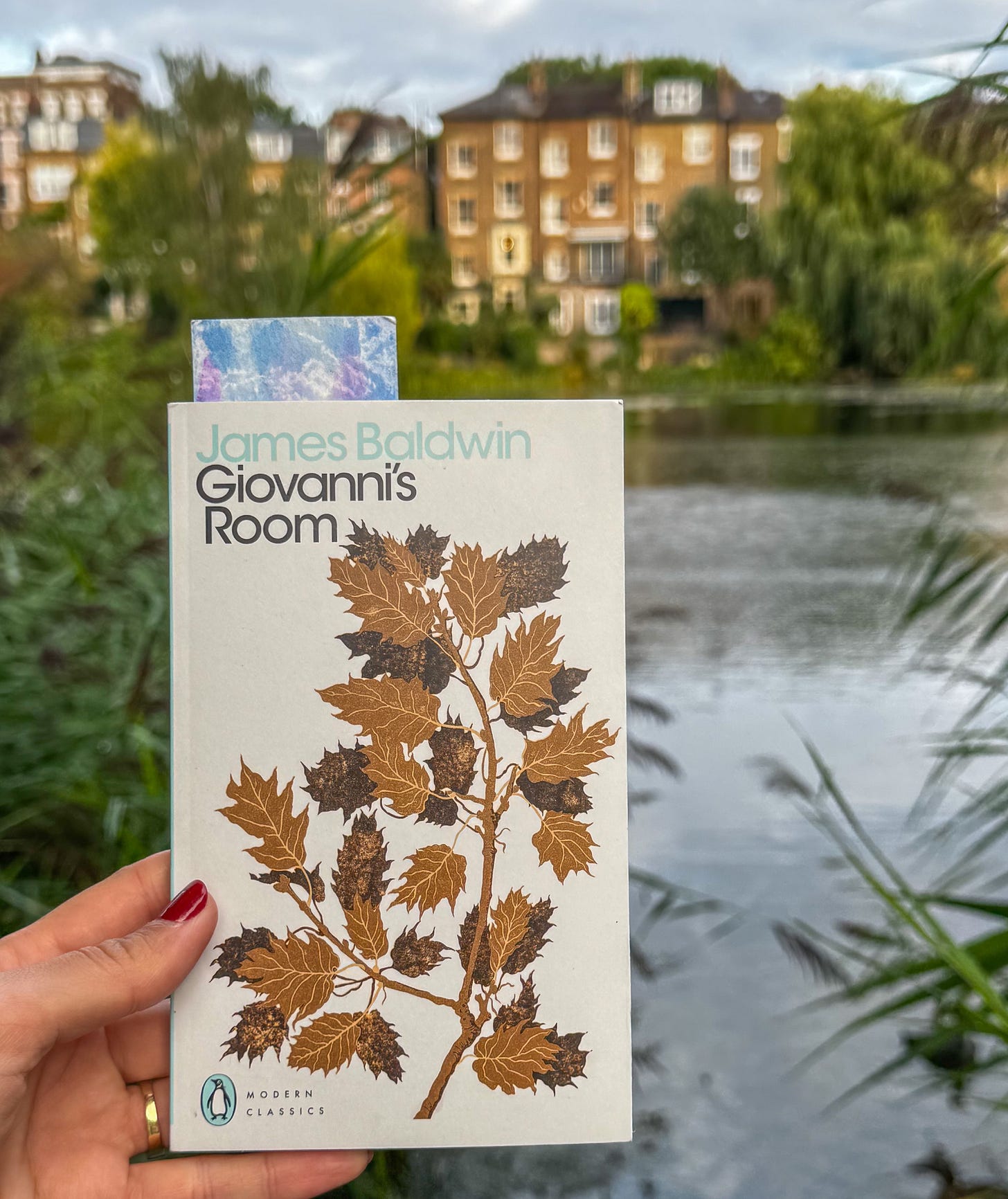Giovanni's Room kept popping up in my reading suggestions, but I never paid it much attention until it was chosen as the Classic Book of the Month for the Book on the Hill book club. This is the second book I've read from their club, and just like the first—The Remains of the Day by Kazuo Ishiguro -I loved it. Though I couldn't attend the meetings, reading both selections was a joy.
This book is small in size but immense in its depth. Usually, it takes me a while to get into a new book, but this one was different; I was hooked from the very first sentence and couldn't put it down. I’m so glad I finally read it, and for the first time, I envy those who haven’t, because they still have the joy of discovering it ahead of them.

A Deeper Look at the Author and the Book
James Baldwin (1924–1987) was an American novelist, essayist, playwright, poet, and civil rights activist. He was renowned for his eloquent and passionate prose, which explored complex themes of race, sexuality, and class, offering a profound commentary on American identity during the mid-20th century. Baldwin, a gay man who also had relationships with women, wrote extensively about love and sexuality, seeing it as fluid rather than defined by rigid categories. He preferred to be seen as someone who simply chose love, no matter its recipient.
Published in 1956, Giovanni’s Room is a novel about a young American man, David, who struggles to accept his sexuality. The book was initially titled One for My Baby, and was dedicated to Lucien Happersberger, Baldwin’s lover in Europe during the 1950s. Today, Giovanni’s Room is celebrated as a cornerstone of LGBTQ literature, although Baldwin initially struggled to find a publisher for it.
The story:
Baldwin employs a clever strategy by telling us about the ending right at the beginning. Knowing what will happen made me even more eager to understand David's story. Reading about David’s love life — his dilemma between choosing his girlfriend or Giovanni- is as beautiful as it is sad.
It's astonishing how beautifully Baldwin writes, and the conversations between David and Giovanni are some of the most beautiful parts of the book. Giovanni is David’s opposite in his view of life — open, fearless, and free in his feelings, yet a true philosopher.
The book’s main theme is the shame David feels about his sexuality, but it’s actually much more than that. It's about the shame people feel toward themselves in general. David is a symbol for most of us: people who don’t fully accept social norms but are also unable to free themselves from them, almost like Stockholm syndrome.
As someone who often thinks about the meaning of home, I particularly enjoyed the parts of the book that explored this idea. In the story, home is not just a physical place; it represents the self, a whole identity.
During one of their conversations about Giovanni’s home country, Italy, they shared this beautiful exchange:
Would you rather go to Italy? Would you rather visit your home?'
He smiled. I do not think I have a home there any more.' And then: No. I would not like to go to Italy - perhaps after all, for the same reason you do not want to go to the United States.' But I am going to the United States,' I said, quickly. And he looked at me. I mean, I'm certainly going to go back there one of these days.'
'One of these days,' he said. 'Everything bad will happen - one of these days.'
'Why is it bad?'
He smiled, 'Why, you will go home and then you will find that home is not home any more. Then you will really be in trouble. As long as you stay here, you can always think: One day I will go home.
On another occasion, in a haunting line, David thinks,
Perhaps home is not a place, but simply an irrevocable condition.
This idea of a permanent, unshakeable identity—his disconsolate and deeply un-American home—is what he finally can't pretend to shed.
Giovanni's Room, to me, is a masterpiece that needs to be read and recognised more widely. What lingers after closing the book is not only Baldwin’s lyricism, but the ache of recognition: the shame, the longing, the search for one’s true self – or perhaps, for home.
It's a must-read for anyone who wants a book that will make them ponder and enjoy great writing.
Thanks for reading☺️ If you liked this review, press ❤️ and share it with your friends!



